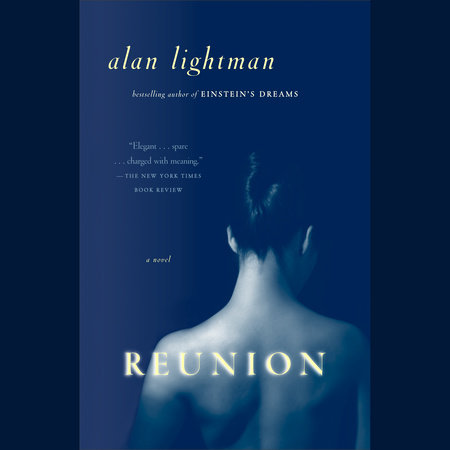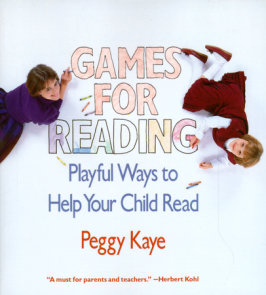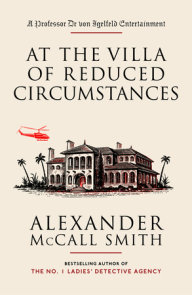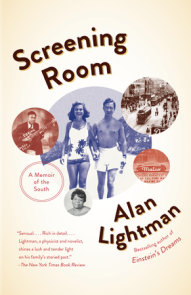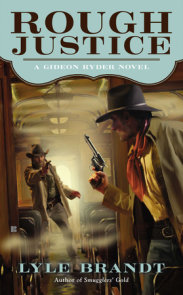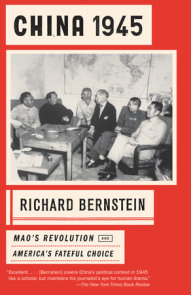READERS GUIDE
“Elegant . . . spare, economical and charged with meaning.” —The New York Times Book ReviewWe hope the following questions and discussion topics enhance your group’s reading of Alan Lightman’s latest novel, Reunion, a profound meditation on human desires, the power of memory, and how our past shapes the people we become.
Introduction
Charles is a middle-aged college English professor who is obsessed with the passions of others, but who lives a modest, routine life. On a whim, Charles decides to attend his college reunion, where he meets with a cast of former classmates who he hardly remembers and a friend or two from his youth. But it is Charles’s vision of his younger self sitting on the college green that triggers the return of long-suppressed and bittersweet memories. He replays, sometimes with contradictory mental pictures, the two most important events of his senior year: his relationship with a respected English professor whose mentoring helped encourage Charles’s now-abandoned aspirations to become a poet, and his budding romance with a beautiful ballerina in New York City. The older man’s review of his younger self’s passion, humiliations and triumphs becomes a study of the indomitable–and fleeting–state of youth. And while his memories may bring Charles closer to understanding the urges of his own heart and the consequences of past decisions, it is the inevitability of the present that he is ultimately forced to accept.Questions and Topics for Discussion
1. Why is Charles crying at the end of the novel [p. 231]? Is it for lost youth, lost love, his lost child, loss of power, loss of the ability to feel, or something else altogether? Did he learn something during his reunion that makes him cry?
2. Charles muses: “Although I was prepared to suffer, it never occurred to me that she might be using me the way that Lena used Ulrich. . . . It never occurred to me that she might travel from one man to the next to avoid being abandoned. Or to avoid being worshiped like a goddess, a worship she both relished and despised” [pp. 128-9]. Is this a fair characterization of Juliana? Are all the signs of Juliana’s self-absorption [see p. 122 and p. 139] apparent only now to the older Charles, or did the younger Charles notice but choose to ignore them? Is to love, necessarily, to suffer, or did Charles just happen to fall for the wrong person? What might be Juliana’s version of their relationship?
3. How is the life of a dancer evoked? Charles comments, “Her life is so simple, focused on one single thing” [p. 87], but does he ever really understand the commitment Juliana makes? Would Juliana describe her life differently than Charles?
4. Charles reflects that “through [Juliana] he is learning who he is. He is her ‘sensitive college boy,’ she tells him. She says that he is arrogant at times but willing to admit his mistakes” [p. 146]. But the older Charles tells his younger self that his mistake was “[y]ou knew nothing about yourself” [p. 96]. Does Charles, in fact, ever learn who he is and why he is that way?
5. Does Charles’s reunion experience confirm Kierkegaard’s assertion that “Life can be understood only looking backward, but it can be lived only going forward” [p. 40]? Under this theory, is it possible to learn from one’s mistakes and to change the course of one’s life? Is understanding empowering to Charles or merely depressing?
6. How might one describe Charles’s personality? Is his description of himself as “selfish” accurate [p. 10]? Is Charles a sympathetic or likeable character? Does Charles’s personality alter from when he was a young student to when he becomes a middle-aged professor? Does Charles take responsibility for his actions?
7. Is the theory about “relativity of values” that is so attractive to Charles essentially a selfish one [pp. 6-8]? Does Charles behave consistently with this theory? Do the actions of the other characters in Reunion support the conclusion of Charles’s favorite book, The Morning of Artifice, that “at bottom people are selfish” [p. 96]? Is love necessarily selfish? How might the older Charles answer the questions posed by his younger self: “Is it possible for a person to love without wanting love back? . . . Or is love, by its nature, a reciprocity, like oceans and clouds, an evaporating of seawater and a replenishing by rain?” [p. 192]
8. What does the reader know about Charles’s relationship with his wife, and why does Charles (or the author) choose to reveal so little about his marriage? Why did Barbara leave him everything in the divorce [pp. 129-130]? Charles observes that his relationship with his daughter might have suffered because of his affair with Juliana [p. 225], but he does not comment on how his marriage might have been affected. Why not? How might his marriage have been affected by his affair? Why does Charles disdain the ambition his wife embraced [pp. 129-130]?
9. The older Charles recollects of his younger self: “Charles senses that he shares something with Galloway, some kind of dissatisfaction with life” [p. 57]. What other qualities do the young Charles and Galloway have in common? How does Charles’s relationship with Juliana compare to Galloway’s relationship with her? How does Charles really feel about Galloway? Does Charles grow up to become just like him?
10. Charles theorizes: “The astronomer . . . was a tragic figure of sorts. He allowed his personal pride to end his promising professional career. And there lies the tragedy” [p. 16]. Is Cunningham also a tragic figure? Is Charles? Is Juliana? Is Michael Bisi? With whom does Charles identify? Who does he admire and despise and why? Is “an opportunity lost” a “true tragedy” as the older Charles asserts [p. 39]? If so, is Reunion a tragedy?
11. In his narrative, Charles alludes to two types of power. First, Lena, who caused the astronomer’s downfall, discovered “the most powerful force in the universe, and that force is all the stronger for not being diluted with compassion” [p. 17]. What is this powerful force? Second, Charles attributes “the power of not knowing the future” [p. 161] to his younger self. How is this lack of knowledge empowering? Which type of power turns out to be the stronger one in Reunion?
12. Why is Charles angry with Cunningham for not understanding the astronomer as he does [p. 47]?
13. The older Charles remembers, “Still, there’s something about Nick that Charles admires” [p. 105]. Then, later, Charles recalls that on the rabbit hunting trip “He realizes how much he hates Nick” [p. 115]. Upon what is Charles’s love-hate relationship with Nick Blanchard based? Can Nick Blanchard be understood as a product of everything that was simultaneously good and bad about America in the 1960s? How does Charles distinguish himself not only from Nick but also from that period in America’s history [see p. 76]?
14. What are the different narrative voices that Lightman utilizes in Reunion? How do they differ in tone and in perspective? How does Lightman effectively convey the different points of view and attitudes of an older man and a younger man? How does Lightman transition from voice to voice, and are these transitions smooth or jarring to the reader? How do the different voices affect the reader’s relationship with the characters? [See pp. 26, 50-51, 74, 94 and 130 for examples of shifts in narrative voice.]
15. Charles recollects contradictory accounts of both his confrontation with Galloway [pp. 173-81] and his final meeting with Juliana [pp. 208-217]. How do Charles’s conflicting memories illustrate what he wants to remember about these events in his life and what he wants to forget? Why might he hide certain truths from himself even long after they are past?
16. What decision do you think Juliana ultimately makes regarding her life? Does an understanding of the themes explored in Reunion hinge upon her decision?
17. What does Charles mean when he writes, “We are all being seduced” [p. 23]?
18. What does Charles admire about Emily Dickinson [p. 54]? If you are familiar with the life or works of Emily Dickinson, do you see any similarities between Dickinson and Charles?
19. What is the attitude of the author, himself a university professor, toward college professors and college life in general? Are the portraits of Charles and Galloway flattering? What is the significance of Galloway’s argument in front of the class with the student assistant about the order of names on academic publications [p. 62-66]?







